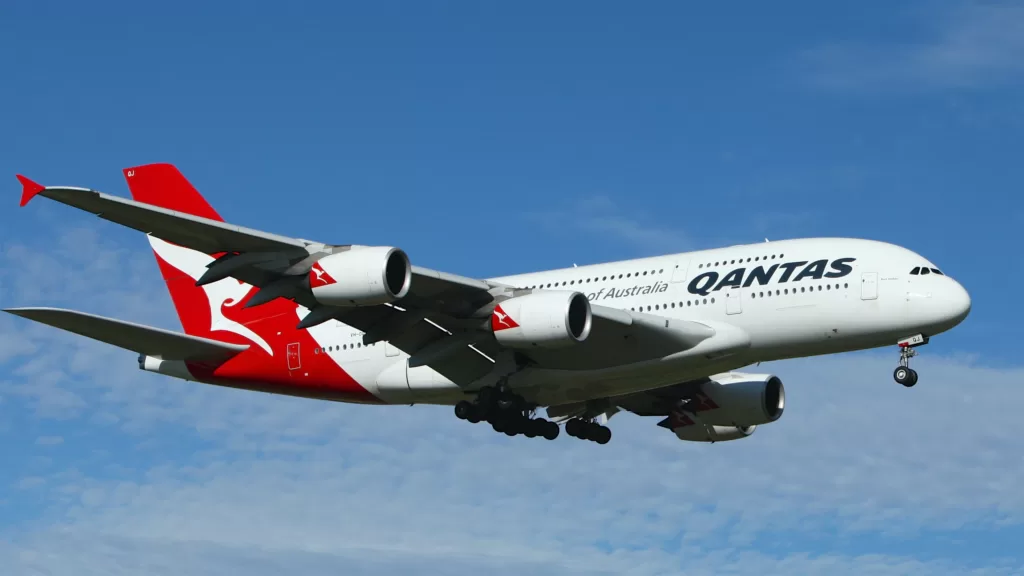Australian flagship carrier Qantas is forecasted to secure a record underlying profit of $2.48 billion for the current fiscal year. This bright outlook comes on the back of increased flight operations and the re-introduction of the airline’s wide-body fleet, which had been grounded during the COVID-19 pandemic. In a move typically intended to boost share price, Qantas also announced a $100 million increase in its on-market share buyback. However, despite these promising financial indicators, the airline’s share prices surprisingly dipped by 2%.
Current Financial Standing and Future Expectations
In a quarterly market update released on Tuesday, Qantas projected an underlying profit before tax ranging from $2.43 billion to $2.48 billion. This fiscal prediction is a staggering $1 billion above its previous record set in 2018, demonstrating a strong recovery from the severe financial crisis caused by the pandemic. This turnaround is a testament to the airline’s ability to moderate costs in fuel and supply chain areas as the aviation industry stabilizes in the post-COVID period.
CEO Comments on Airfare and Supply-Demand Mismatch
Alan Joyce, the outgoing CEO of Qantas, hinted at potential airfare reductions in the future. According to Joyce, the reintegration of surplus aircraft and crew into the flight schedule, combined with lower fuel prices, is fostering some downward pressure on airfares, a development beneficial to customers. However, Joyce also noted an ongoing “mismatch” between supply and demand in international flying, indicating that despite potential reductions, airfares could remain higher than pre-pandemic levels for a while.
Outlook on Airline Capacity and Operational Challenges
Qantas expects to surpass pre-COVID-19 levels in domestic capacity and reach 80% of pre-COVID international capacity by the end of the current financial year. A considerable boost in flights within Australia’s “Golden Triangle” (Sydney, Melbourne, and Brisbane) has helped drive this recovery. However, operational delays and staff shortages in the industry have put a damper on these growth plans. In particular, Qantas’ budget carrier, Jetstar, experienced significant disruptions with over 40% of its flights delayed and an 8% cancellation rate in April alone.
Capital Expenditure and Debt Status
The airline’s extensive fleet renewal plan and the associated capital expenditure have raised some eyebrows among market analysts. Nonetheless, Qantas remains confident in achieving its capital expenditure objectives of $2.6 billion to $2.7 billion this year, including advance payments for aircraft as part of its fleet renewal plan. Further, the company’s net debt is expected to land between $2.7 billion and $2.9 billion by the end of June, considerably below its revised target range of $3.7 billion to $4.6 billion.
Controversies and Criticism
Despite the promising financial forecasts, Qantas has found itself embroiled in controversy. The Transport Workers Union, for instance, has demanded that Qantas repay the $2.7 billion in government support it received during the pandemic. The airline is also facing potential legal consequences if a court ruling finds that it unlawfully outsourced 1,700 ground handler jobs.

Customer Behavior and Future Leadership
While Australian households grapple with rising living costs, travel remains a priority. Qantas acknowledges this trend, noting a decrease in airfares without specifying the extent. Moreover, this financial year will be Alan Joyce’s last full reporting period as CEO of Qantas. Vanessa Hudson, the current CFO, is poised to take over as chief executive in November.
Conclusion
In conclusion, despite the record profit forecasts and an expanded share buyback program, Qantas shares have stumbled in the market. This unexpected market response underscores the high expectations of shareholders and highlights the uncertainties surrounding the aviation industry’s recovery in the post-COVID era. As Qantas navigates these challenges, the performance of the company’s shares will undoubtedly remain a topic of keen interest.
Recommendations for Shareholders and Prospective Buyers
In evaluating an investment in Qantas or any company, there are several factors you may want to consider. These can include the company’s recent financial performance, its future earnings projections, the broader state of the industry, the competitive landscape, and the overall health of the economy. In Qantas’ case, you may want to pay close attention to how its recovery from the COVID-19 pandemic continues, its strategies for dealing with industry challenges such as high fuel prices and supply chain issues, its capital expenditure plans, and its leadership transition.
The share price movements of Qantas following its profit projection and increased share buyback scheme reveal that market expectations for the company are high. While some may see the dip in share price as a buying opportunity, others might interpret it as a sign of caution. There are mixed sentiments in the market, with some analysts expressing skepticism about the company’s capital expenditure exposure due to its extensive fleet renewal plan.
Remember, investing always involves risks, including the risk of loss. It’s essential to carefully evaluate these risks before making investment decisions.
A finance geek with over 20 years of experience, Joseph Bancroft, known as Joe, is the Chief Editor at Money News Biz. He's an acclaimed author, blogger, speaker, and mentor, with a knack for forecasting economic trends and identifying investment opportunities. Joe blends professional acumen with a quirky charm, making him a respected and engaging figure in the finance industry.


